Tool Emergency

What should be included in a basic emergency kit ?
A basic emergency kit should include essential items such as water, non-perishable food, a first aid kit, warm clothing and bedding, lighting and communication tools, a multipurpose tool, cash, personal documents, and a map. The contents may vary depending on the type of emergency and household size. It is important to regularly review and update the kit to ensure it remains effective.

How important is an earthquake emergency kit, and what should it contain ?
The text discusses the importance of being prepared for earthquakes by having an emergency kit with essential items such as water, food, a first aid kit, light sources, clothing, bedding or shelter, tools, sanitation and personal needs, important documents, cash, communication tools, maps and information. It also mentions additional considerations like pet care and multi-tools.

Can you explain the hierarchy of safety signage (i.e., prohibition, warning, mandatory, and emergency) ?
The hierarchy of safety signage is divided into four categories: prohibition, warning, mandatory, and emergency. Prohibition signs indicate actions that are not allowed, while warning signs alert individuals to potential hazards. Mandatory signs indicate required actions for safety, and emergency signs provide critical information during emergencies. Understanding this hierarchy is crucial for creating a safe work environment.

What should female travelers do in case of emergency abroad ?
Female travelers should prepare for emergencies abroad by researching their destination, having a travel plan, registering with their embassy, preparing an emergency kit, and learning basic language skills. In case of an emergency, they should assess the situation, seek help, take protective measures, and communicate with loved ones. After dealing with the immediate emergency, they should seek medical attention, report the incident, and reflect on their response. Additional tips include trusting their instincts, considering travel insurance, and staying connected.
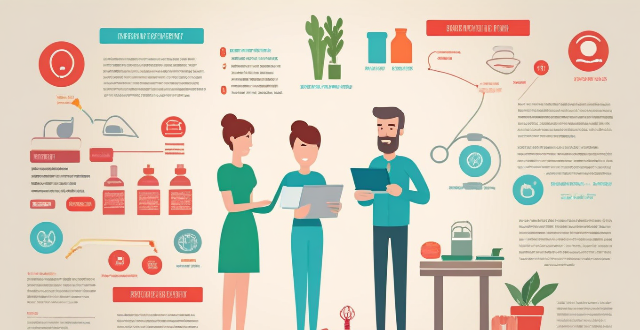
How can I ensure the safety of my family during an emergency ?
To ensure the safety of your family during an emergency, create an emergency plan that includes a contact list, meeting place, escape routes, and assigned responsibilities. Maintain essential supplies such as food, water, medical supplies, and an emergency kit. Stay informed about local emergencies through news sources, alert apps, and local alert systems. Secure your home by inspecting for hazards, reinforcing doors and windows, and having smoke detectors and fire extinguishers. Educate your family on self-defense techniques, first aid and CPR, and discuss potential emergencies.

How can I prepare for an emergency situation ?
The article provides a comprehensive guide on how to prepare for an emergency situation. It emphasizes the importance of being prepared for emergencies, which can strike at any time and pose a threat to the safety of individuals and their loved ones. The first step in preparing for an emergency is to assess the risks that are most likely to affect you. This involves identifying potential natural disasters or man-made emergencies that could occur in your area. Once you have identified these risks, you can begin to develop a plan for how to respond. The next step is to create an emergency kit that contains all the essential items you will need in case of an emergency. This includes water, non-perishable food, a first aid kit, a flashlight, warm clothing, a map of the area, a cell phone with charger, cash, and important documents. Having a plan in place is also crucial in ensuring that everyone knows what to do in case of an emergency. Your plan should include a designated meeting place, an evacuation route, a communication strategy, and a backup plan. Staying informed about local weather reports and news alerts is another important aspect of emergency preparedness. Signing up for community warning systems can also help you stay informed about potential emergencies in your area. Finally, practicing your emergency plan regularly can help ensure that everyone remains calm and focused during an actual emergency situation. This could involve conducting regular fire drills or practicing evacuation routes.

How important is communication during an emergency response ?
Communication is a critical component of any emergency response. It helps to coordinate efforts, gather information, make decisions, and ensure the safety of all parties involved. Effective communication can streamline the response process and avoid confusion or misunderstandings. The importance of communication during an emergency response includes coordination, information gathering, decision making, and safety. Best practices for communication during an emergency response include using clear and concise language, establishing a chain of command, using multiple channels of communication, and maintaining situational awareness. By following these best practices, you can help to streamline the response process and minimize damage. Remember that effective communication is essential for ensuring the safety and well-being of everyone involved in emergencies.

What is the impact of communication interference on emergency services ?
Communication interference can significantly impact emergency services by delaying response time, impairing coordination, increasing risk to responders and victims, disrupting technology, and negatively affecting public perception. It is crucial for emergency services to prioritize reliable communication systems and protocols to minimize the impact of interference and ensure effective responses to emergencies.
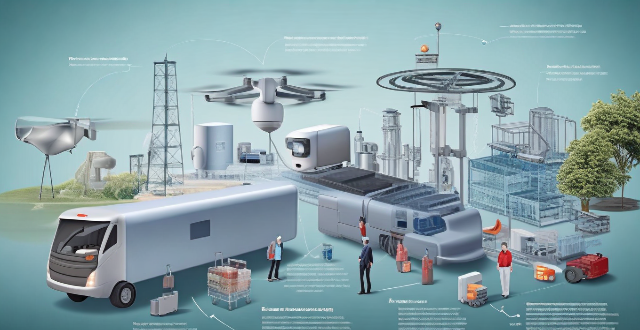
What role does technology play in emergency response ?
The article discusses the various ways technology is used in emergency response, including communication via instant messaging platforms and two-way radios, GPS tracking for vehicles and personnel, data analysis for crime and fire trends, and the use of drones and robots. Technology has made emergency response more efficient and effective by improving communication, location tracking, data analysis, and automation.

How do I train my employees for emergency situations ?
Training employees for emergency situations is crucial to ensure their safety and minimize the impact of emergencies on your business. Here's a summary of the key steps involved: 1. Identify potential emergencies that could occur in your workplace, such as fire, medical emergencies, natural disasters, workplace violence, and chemical spills or hazardous materials incidents. 2. Develop an emergency plan that outlines the steps employees should take during each type of emergency. This plan should include evacuation procedures, first aid protocols, contact information for emergency services, safe locations, and procedures for accounting for all employees after an emergency. 3. Conduct regular emergency drills to ensure that employees are familiar with the emergency plan and know what to do in case of an emergency. Drills should be conducted at least annually and cover all types of emergencies identified in the emergency plan. 4. Provide training on how to use safety equipment such as fire extinguishers, first aid kits, and safety goggles. This training should be provided during new employee orientation and refresher courses should be offered regularly. 5. Encourage open communication between employees and management regarding safety concerns and suggestions for improvement. This can be done through regular safety meetings, suggestion boxes, or anonymous surveys. By following these steps, you can create a safe and prepared workforce that is ready to handle any emergency situation.

How important is it to have a portable emergency kit when traveling abroad ?
**The Importance of a Portable Emergency Kit for Traveling Abroad** Embarking on an international journey requires preparation, especially in handling unforeseen events. Here's why carrying a portable emergency kit is crucial: 1. **Preparedness for Unexpected Circumstances**: It helps manage medical emergencies, natural disasters, and travel delays effectively. 2. **Components of an Ideal Emergency Kit**: Includes first aid supplies, hygiene items, nutrition, lighting, important documents, and protective gear. 3. **Customization Based on Destination**: Tailor the kit to climate considerations and location-specific needs for better preparedness. 4. **Peace of Mind**: Being prepared offers peace of mind, allowing focus on enjoying the trip rather than worrying about potential issues.

How can I improve my company's emergency response capabilities ?
Improving your company's emergency response capabilities is crucial for ensuring the safety of employees, customers, and assets. Here are some steps you can take to enhance your organization's ability to handle emergencies effectively: 1. Conduct a Risk Assessment 2. Develop an Emergency Response Plan 3. Train Employees and Conduct Drills 4. Invest in Technology and Equipment 5. Maintain a Culture of Safety

How can I create an emergency evacuation plan for my family ?
Creating an emergency evacuation plan is crucial for the safety of your family during unexpected events such as natural disasters, fires, or other emergencies. Here are some steps to help you create a comprehensive emergency evacuation plan: 1. Identify potential risks that could affect your home and community. 2. Gather important information including contact information, medical information, insurance information, and financial information. 3. Determine the best evacuation routes from your home in case of an emergency. 4. Choose a meeting place outside of your home where your family can regroup in case of an emergency. 5. Practice your emergency evacuation plan with your family on a regular basis. 6. Stay informed about potential risks and updates from local authorities.

Are there any special considerations for creating an emergency kit for children ?
Special considerations for creating an emergency kit for children include age-appropriate items, comfort items, snacks and water, clothing and footwear, and entertainment. It is important to tailor the contents of the kit to the child's needs and abilities, and include items that can help to calm and reassure the child during an emergency situation.

What actions are being taken globally to address the climate emergency ?
The climate emergency is a pressing issue caused by human activities leading to global warming. International agreements like the Paris Agreement aim to limit global warming, and many countries have implemented national policies such as carbon pricing and renewable energy mandates. Corporations are also taking actions to reduce emissions and invest in clean energy. Addressing the climate emergency requires a global effort from all levels of society.

What are the key steps to take during an emergency evacuation ?
During an emergency evacuation, it is important to stay calm and alert, follow evacuation procedures, gather essential items, check for hazards, help others, listen to instructions from authorities, move quickly but safely, and assemble at designated areas. Staying calm helps in thinking clearly and making quick decisions, while being alert means paying attention to surroundings and instructions. Familiarizing with building's evacuation procedures beforehand, looking for exit signs, avoiding elevators, and using stairs are crucial. Gathering important documents, medications, and other essential items on the way out is also important. Checking for potential hazards such as fire, smoke, or structural damage, and seeking assistance from emergency personnel if a path is blocked is necessary. Helping others who may need assistance, remaining together as a group, and staying in contact throughout the evacuation process is recommended. Listening carefully to instructions given by authorities or emergency personnel is crucial as they may provide additional information about the situation or direct to specific locations for safety or further assistance. Moving quickly but avoiding running or pushing others, watching your step to avoid tripping or falling, especially if there are obstacles or debris on the ground is important. Proceeding to the designated assembly area where authorities can take attendance and provide further instructions, and not returning to the building until instructed to do so by authorities is also recommended.

What is the best way to store an emergency kit in a small apartment ?
When it comes to emergency preparedness, having an emergency kit is essential. However, if you live in a small apartment, finding the space to store all the necessary items can be challenging. Here are some tips on how to store an emergency kit in a small apartment: Determine the type of emergency kit you need, choose the right container, organize your kit, and store it properly. Keep your emergency kit in an easily accessible location, avoid storing it under heavy objects or in areas that may be blocked by debris during an emergency, check it regularly to ensure that items are still usable and up-to-date, replace any expired items promptly, and consider storing additional copies of important documents in your emergency kit. By following these tips, you can effectively store an emergency kit in a small apartment while still being prepared for any potential emergencies.

Can sports be used as a tool for conflict resolution and peacebuilding ?
The text discusses the potential of sports as a tool for conflict resolution and peacebuilding. It highlights the power of sports to break down barriers, promote equality, and build trust among individuals from different backgrounds, cultures, and beliefs. The text provides examples of how sports have been used in this context, such as the Olympics, Peace Teams International, and Soccer for Peace. It concludes that while sports alone cannot solve all conflicts or bring lasting peace, they can be a powerful tool in these efforts by creating a foundation for peace and understanding.

What kind of first aid supplies should I have in my home emergency kit ?
This article provides a comprehensive list of essential items to include in a home emergency first aid kit. It covers various categories such as adhesive bandages, gauze and roller bandages, medical tape and safety pins, antiseptics and disinfectants, pain relievers and fever reducers, tools and miscellaneous items, and personal items. The article emphasizes the importance of regularly checking expiration dates and replacing supplies as needed. It also suggests ensuring that all family members are aware of the kit's location and how to use its contents properly.

How can I customize my emergency kit for specific medical needs ?
Customizing an emergency kit for specific medical needs is crucial for individuals with health conditions. To tailor your kit, assess your medical needs, list down medications, and identify potential complications. Incorporate specialized equipment like diabetes management tools or heart condition medication. Include general first aid supplies, information cards, and instruction manuals. Don't forget communication tools and personal comfort items to alleviate stress during emergencies. Being prepared can significantly impact managing your health in disaster situations.

What should be included in an emergency response plan ?
An emergency response plan is a critical tool for organizations to prepare for and respond to unexpected events. It outlines the procedures and actions that should be taken during an emergency situation. Key components of an effective emergency response plan include identification of potential emergencies, roles and responsibilities, communication protocols, evacuation procedures, medical assistance, and recovery and restoration steps. By anticipating potential risks and preparing accordingly, organizations can minimize the impact of emergencies and ensure the safety and well-being of their employees and stakeholders.

What are the benefits of using a digital tool for note-taking ?
The article discusses the advantages of using digital tools for note-taking, which include increased efficiency, improved learning and retention, environmental benefits, and collaboration opportunities. Digital notes can be taken quickly, organized easily, searched efficiently, and accessed from anywhere. They also offer visual aids, audio recordings, linking capabilities, and review options that enhance learning and retention. Additionally, digital note-taking reduces paper waste, energy consumption, and physical storage needs, contributing to a more sustainable environment. Finally, digital tools facilitate collaboration by allowing note sharing, real-time editing, version control, and feedback mechanisms. Overall, digital note-taking is an optimal choice for students, professionals, and anyone looking to optimize their note-taking experience.
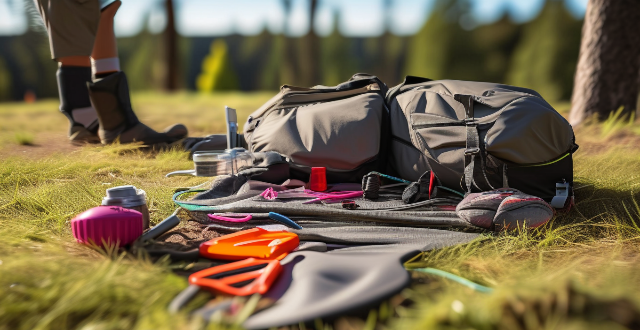
What are some essential sports equipment for outdoor activities like hiking and camping ?
When engaging in outdoor activities like hiking and camping, it is important to have the right sports equipment for safety, comfort, and enjoyment. Essential items include appropriate footwear such as hiking boots and waterproof socks, weather-appropriate clothing, backpacks and bags with dry bags or waterproof containers, sleeping gear like tents and sleeping bags, cooking and eating utensils, lighting and navigation tools, a first aid kit, and miscellaneous items such as multi-tools, sunscreen, and emergency signaling devices. Tailor your gear list to the specific needs of your adventure, check the weather forecast before heading out, and be prepared for any sudden changes in climate or terrain.
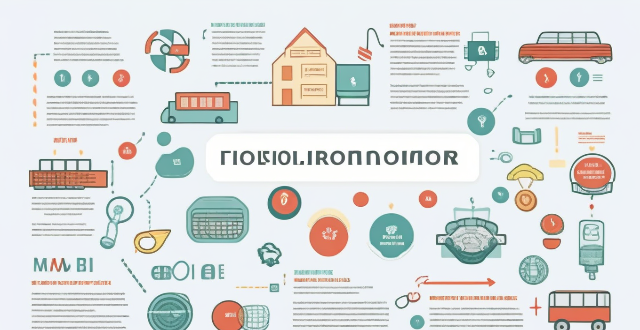
How do I assemble an emergency preparedness kit for my office ?
The text provides a detailed guide on how to assemble an emergency preparedness kit for your office, highlighting the importance of being prepared for potential emergencies. It outlines the steps involved in creating a comprehensive kit, including identifying potential emergencies, choosing a suitable container, and selecting essential items such as water, food, first aid supplies, light sources, battery-powered radios, personal items, tools, important documents, and sanitation supplies. The article emphasizes the need to regularly check and update the kit to ensure its usability and relevance to potential emergencies in the area.

How can satellite communication be used for emergency response and disaster relief ?
Satellite communication is critical in emergency response and disaster relief, offering global coverage, high availability, scalability, and multipurpose use. It enables immediate alerts, coordination, resource deployment, and medical assistance during emergencies. In disaster relief, it aids damage assessment, information dissemination, infrastructure recovery, and aid distribution. Key technical aspects include satellite phones, VSAT terminals, and data collection through sensors. Proper logistics such as training, maintenance, and partnerships with service providers are crucial for effective utilization. Satellite communication significantly enhances the capability to respond to natural disasters and emergencies, reducing their impact on lives and properties.

How do I provide care for someone experiencing anaphylactic shock ?
Anaphylactic shock is a severe allergic reaction that requires immediate care. To provide care for someone experiencing it, recognize the symptoms like skin reactions and respiratory distress, call for emergency help, use an epinephrine auto-injector if available, position the person comfortably, loosen tight clothing, keep them calm, monitor vital signs, and follow instructions from emergency personnel. Timely action can greatly improve the chances of recovery.

How do I prepare for a long-distance cycling trip ?
Preparing for a long-distance cycling trip involves careful planning, physical training, and packing essential gear. Start by researching your route's terrain and weather conditions, then build up your endurance with training rides and strength exercises. Ensure your bike is well-maintained and equipped with necessary tools and bags. Pack smart with suitable clothing, navigation tools, and a first aid kit. Plan for nutrition and hydration needs, prioritize safety with visibility and communication measures, and learn basic bike repairs. Consider legal and ethical aspects like traffic laws and environmental respect. Prepare mentally for the journey's challenges and establish support systems. Finally, have contingency plans in place for unexpected weather or route changes.

How can education help in raising awareness about the climate emergency ?
Education is vital for raising awareness about climate change, empowering individuals with knowledge, and fostering a culture of sustainability and action. Integrating climate change education into curriculums and promoting interdisciplinary learning can influence perception through knowledge dissemination, skills development, values formation, and behavior change. Strategies for integrating climate change education include curriculum integration, interactive learning experiences, technology and digital tools, and global perspectives. By prioritizing climate change education, educators, policymakers, and community leaders play a crucial role in shaping a sustainable future.
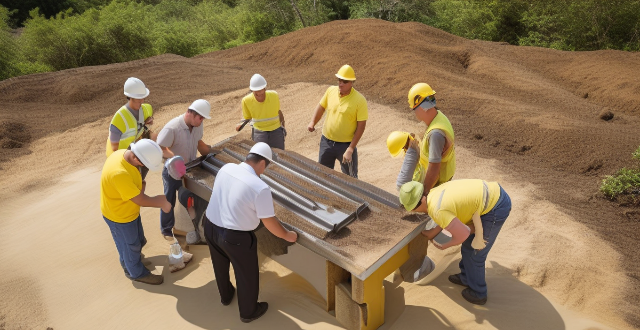
What is a safety drill and why are they important ?
A safety drill is a crucial practice session that simulates emergency situations to prepare individuals and organizations for potential emergencies by practicing evacuation procedures, using safety equipment, and following established protocols. Safety drills are important for several reasons: they familiarize people with emergency procedures, identify weaknesses in current plans, ensure compliance with regulations, maintain readiness, and promote a culture of safety.